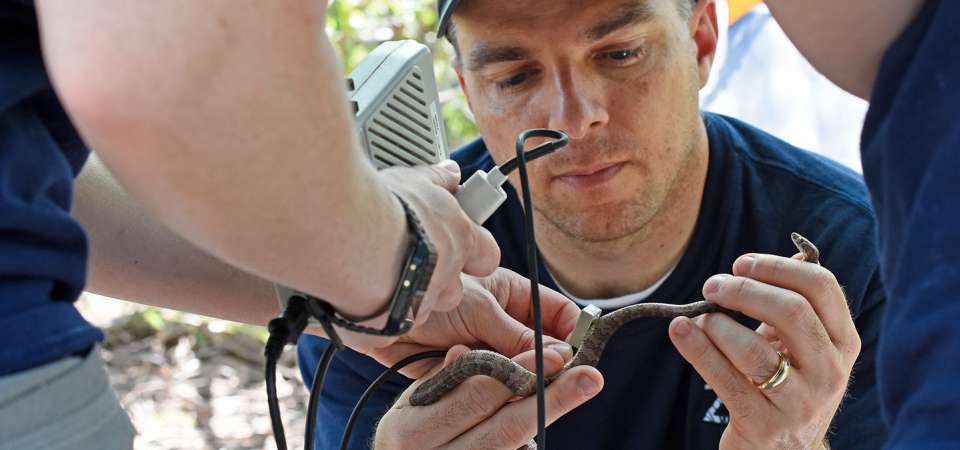
Sunny Weekend Alert
The Zoo anticipates high attendance on sunny weekends. Parking is limited, so arrive early, carpool, and check our site / social pages often for more updates!
The Zoo anticipates high attendance on sunny weekends. Parking is limited, so arrive early, carpool, and check our site / social pages often for more updates!

The Virgin Island tree boa is one of the rarest species of boas in the world. Restricted to only a few islands in the Caribbean, this small snake is threatened by habitat loss and invasive species. The North Carolina Zoo is working to protect this species in the wild by conducting surveys to better understand the species’ distribution and habitat needs. We are also working with several partners on a reintroduction plan; this effort includes establishing a breeding population under human care, and surveying for locations where baby boas can be released once old enough. Lastly, are working to expand educational programming on the species to dispel local myths associated with these small, harmless snakes.
The Virgin Island tree boa is one of the rarest species of boas in the world. Unlike the boa constrictor, this isn’t a large boa species: it only grows to be around two feet long. Because of its small size, the species is highly vulnerable to invasive predators, especially invasive rats and possibly feral cats as well. Its small distribution range—it only occurs within a few small areas on eastern Puerto Rico, the US Virgin Islands, and into the British Virgin Islands—also makes the Virgin Island tree boa very susceptible to habitat changes. US Fish and Wildlife Service considers the species Endangered due to these two threats.

The North Carolina Zoo has recently started working with several conservation organizations from the United States and Virgin Islands to help with the recovery of the Virgin Islands tree boa. The first steps we took was to conduct a survey of the species in the US Virgin Islands. These surveys, which began in March 2018 and are still ongoing will give us a better understanding of the species’ biology, distribution, and habitat needs and will also involve a genetic analysis to better understand the species’ population structure.
While surveys are still in early stages, the partners in this project are also actively preparing for the next step in the species’ recovery—future reintroductions—by establishing a breeding population under human care. We will also be searching for locations that are free from the pressures of habitat loss and invasive species where we can release baby boas produced at breeding facilities such as North Carolina Zoo. Lastly, as an important part of the recovery efforts, the project partners are also working to expand educational programming on the species in country to dispel local myths associated with these small, harmless snakes.
Partners: Ft. Worth Zoo, St. Louis Zoo, US Fish and Wildlife Service, Virgin Islands Division of Wildlife